
2025 In Review: Technology
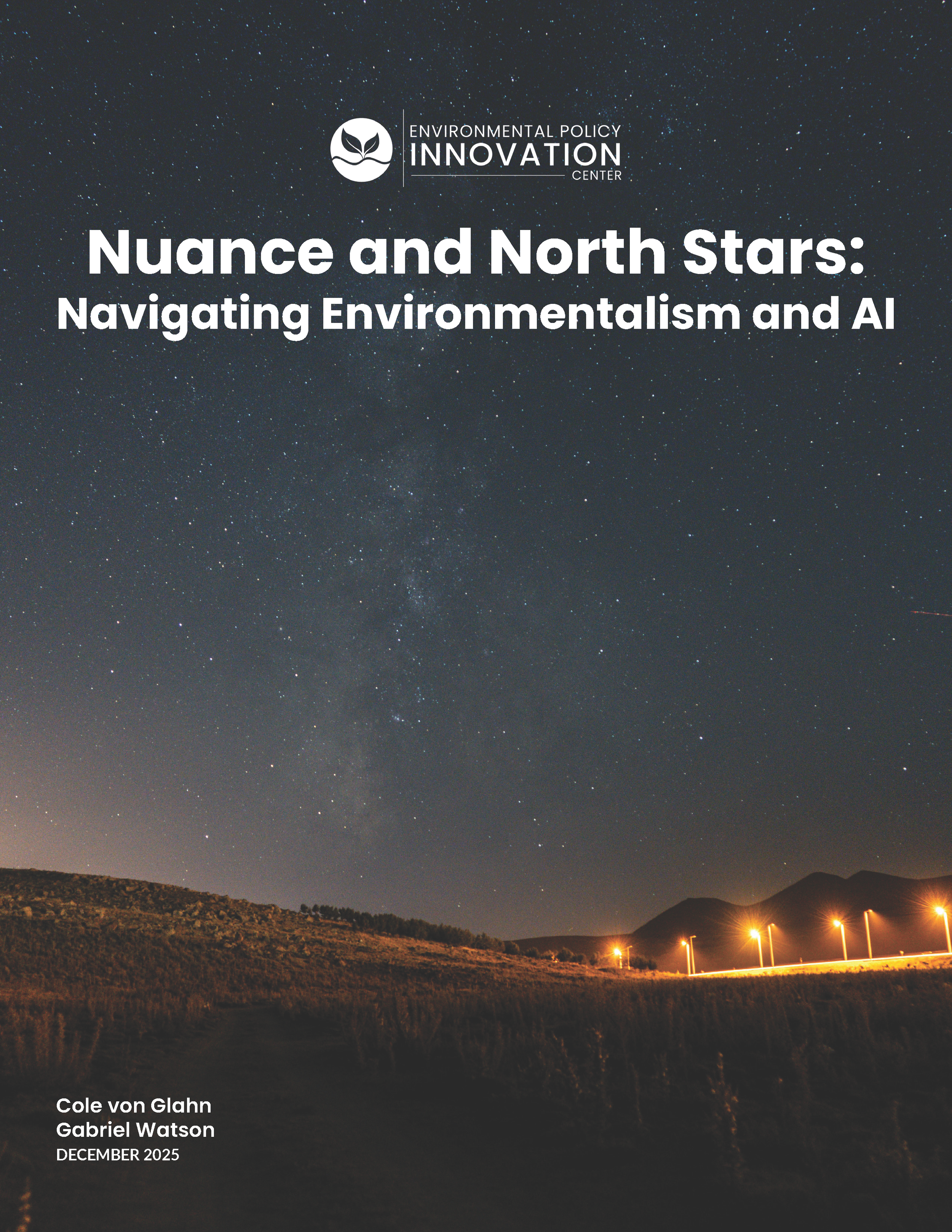
Navigating Environmentalism and AI
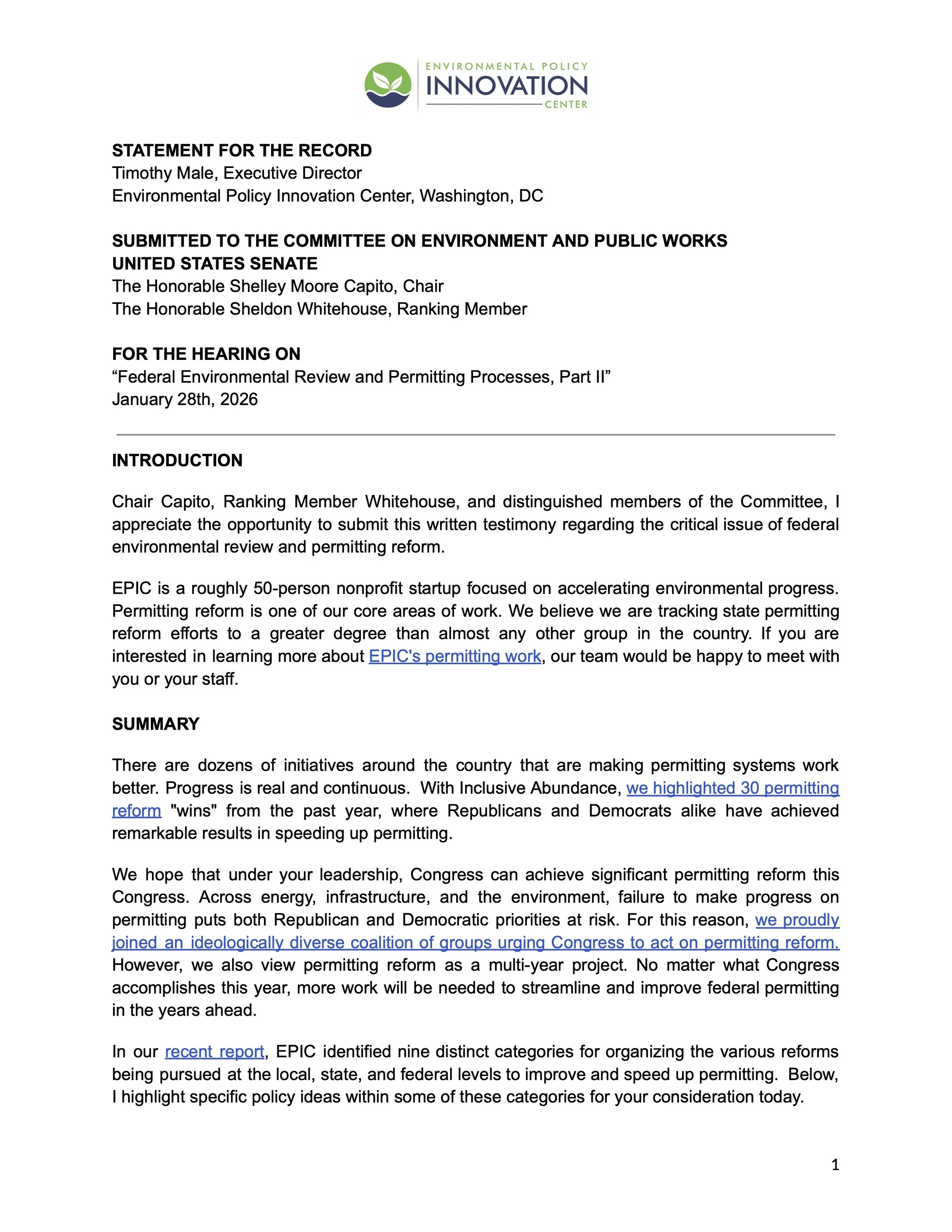
EPIC's Written Testimony for January 2026 EPW Hearing on Federal Environmental Review and Permitting Processes

There are Nine Types of Permitting Reform
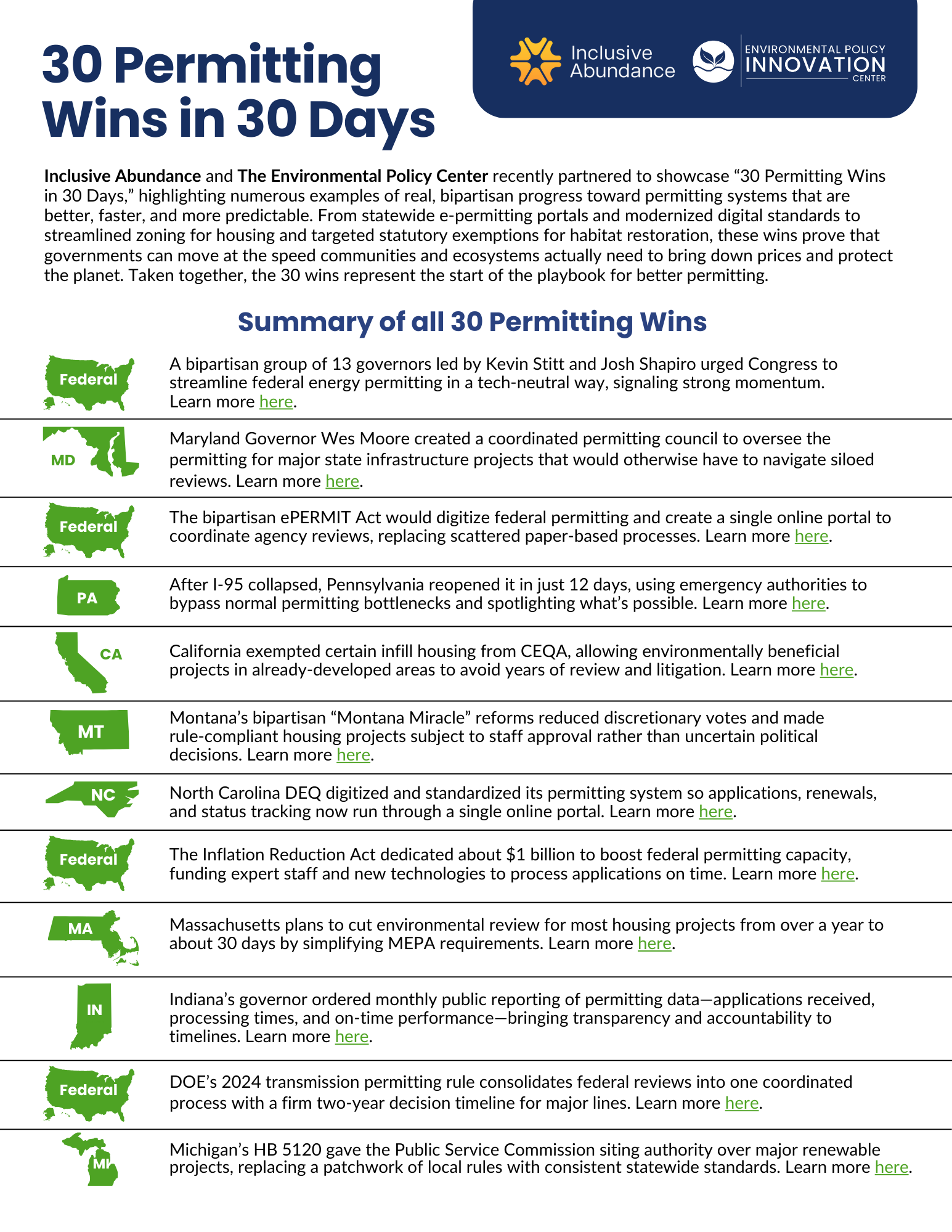
30 Permitting Wins in 30 Days

Tech Capacity in Transition: Barriers and Opportunities in Tech Talent
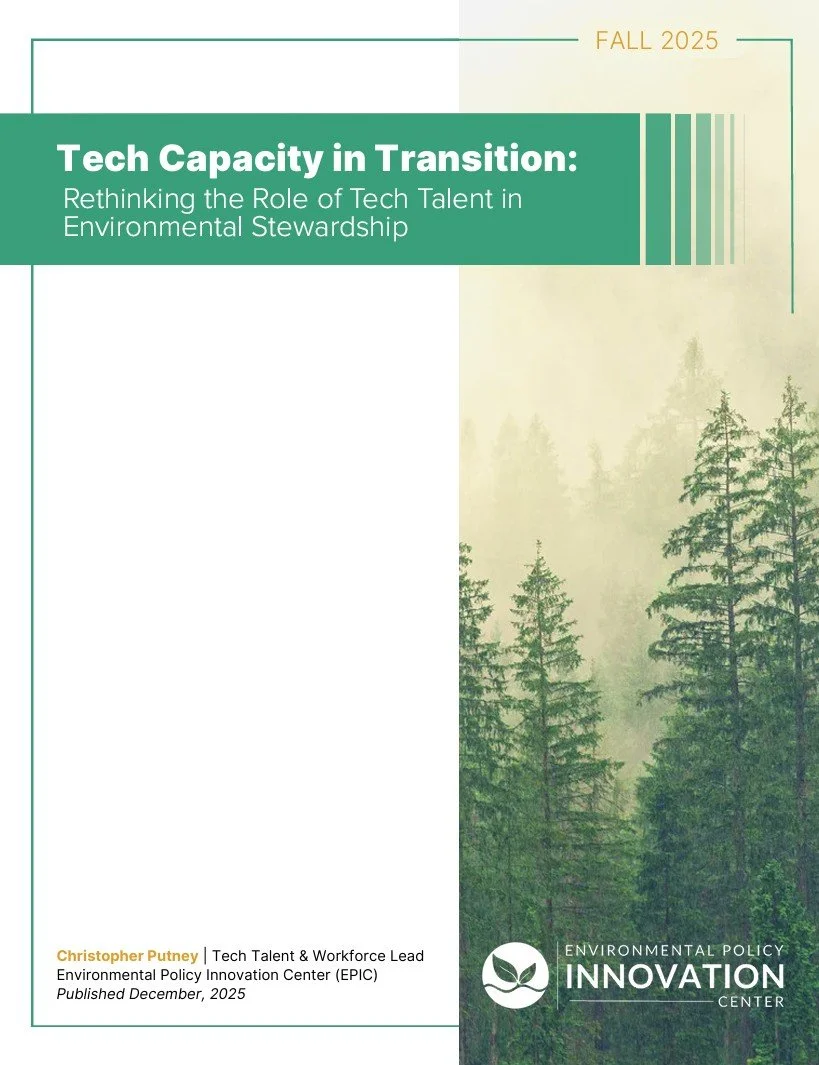
Tech Capacity in Transition: Rethinking the Role of Tech Talent in Environmental Stewardship

Energizing the Ecosocial Alternative for AI

Environmental Permitting is Getting Better
It's not that permitting change might happen. It has changed, is changing, and will change more. We’ve had a great collaboration with the team at Inclusive Abundance these last 15 days, hearing about 15 ‘wins’ for permitting reform they wanted to celebrate. We are starting our own 15-day countdown now. It’s a great way to acknowledge all the progress underway to make environmental permitting laws and programs that better serve the planet, people, and our prosperity.

Better, Faster, and Fairer: State Strategies for Permitting Innovation
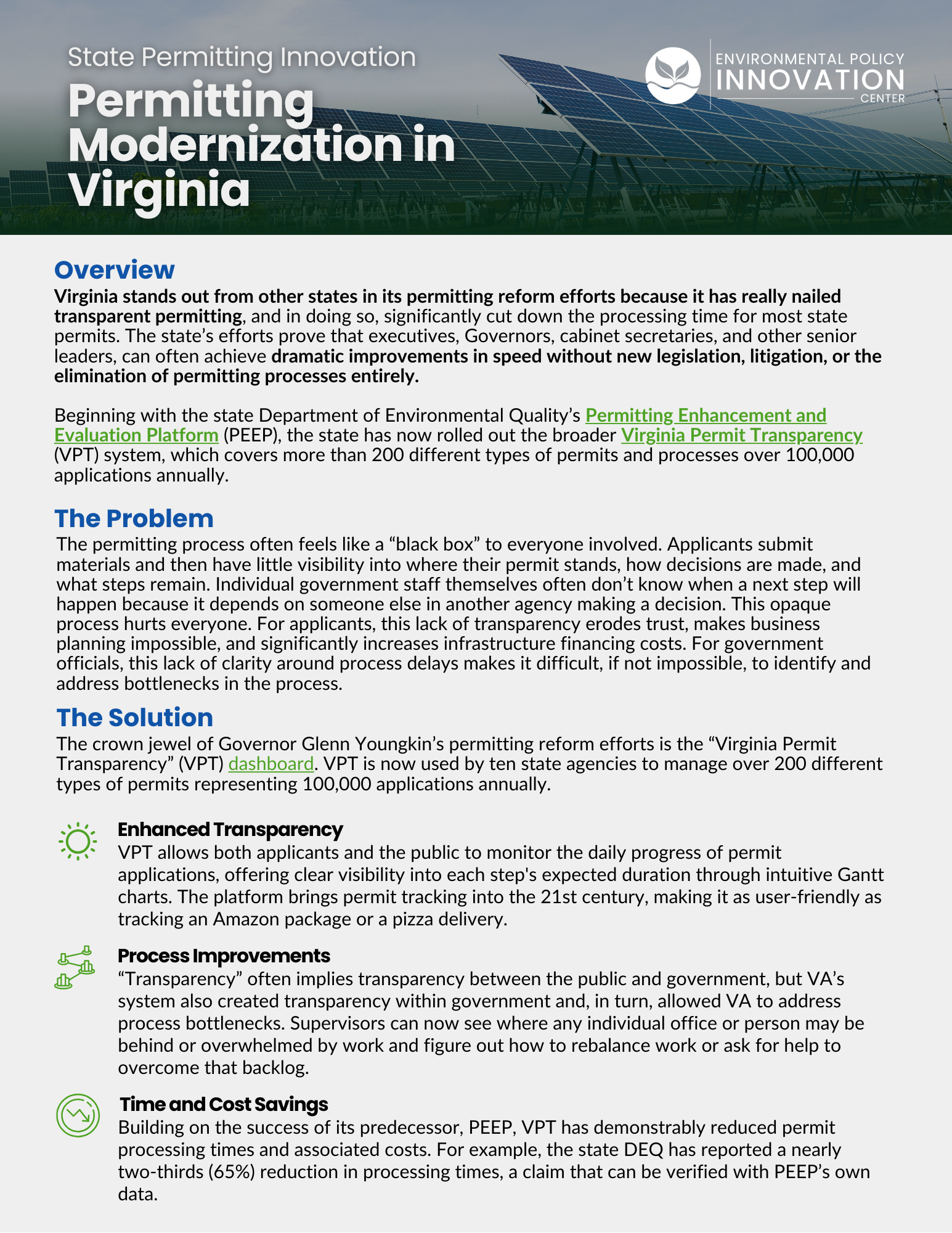
Permitting Modernization in Virginia
Virginia stands out from other states in its permitting reform efforts because it has really nailed transparent permitting, and in doing so, significantly cut down the processing time for most state permits.

Day 2 at the Society of American Foresters Conference: The Technology-Capability Gap
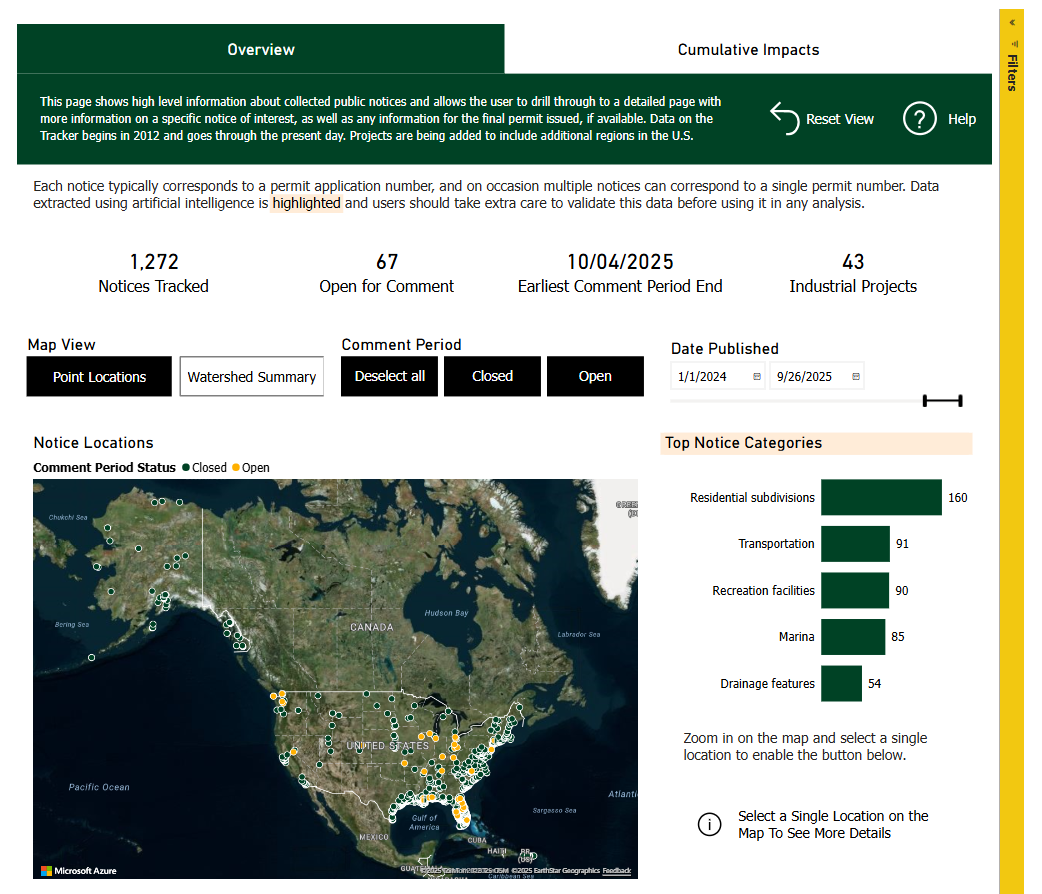
Expanding our Understanding of Wetlands: Nation-wide Updates to the Wetlands Impact Tracker

Empowering Our Forest Stewards: A New Era of Innovation

4 Pillars for Permitting Innovation
The permitting reform space is growing fast, and there are clearly different philosophies for why this work is important, what values should guide us in identifying solutions, whether reform is even needed, and how we build a large enough coalition to make meaningful changes at all levels of government.

Reimagining Forestry in the Digital Age: An Invitation to the Old Guard and the Next Generation

Updates to our Permitting Tools Inventory

Forbes Announces Jessie Mahr as Global Sustainability Leader!

NEPATEC2.0 - The Next Step in AI-Driven Permitting Innovation


